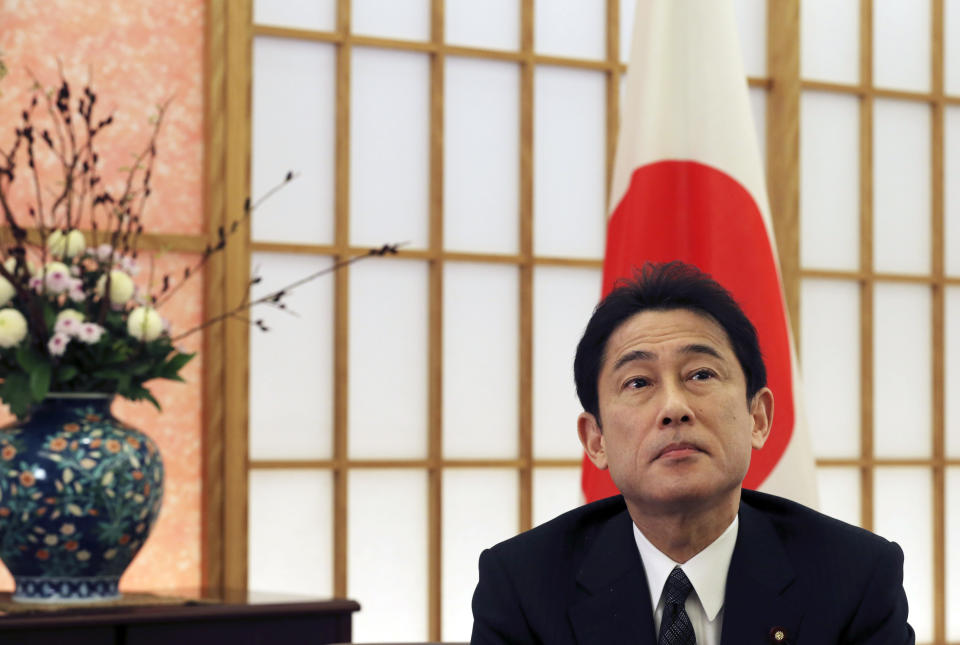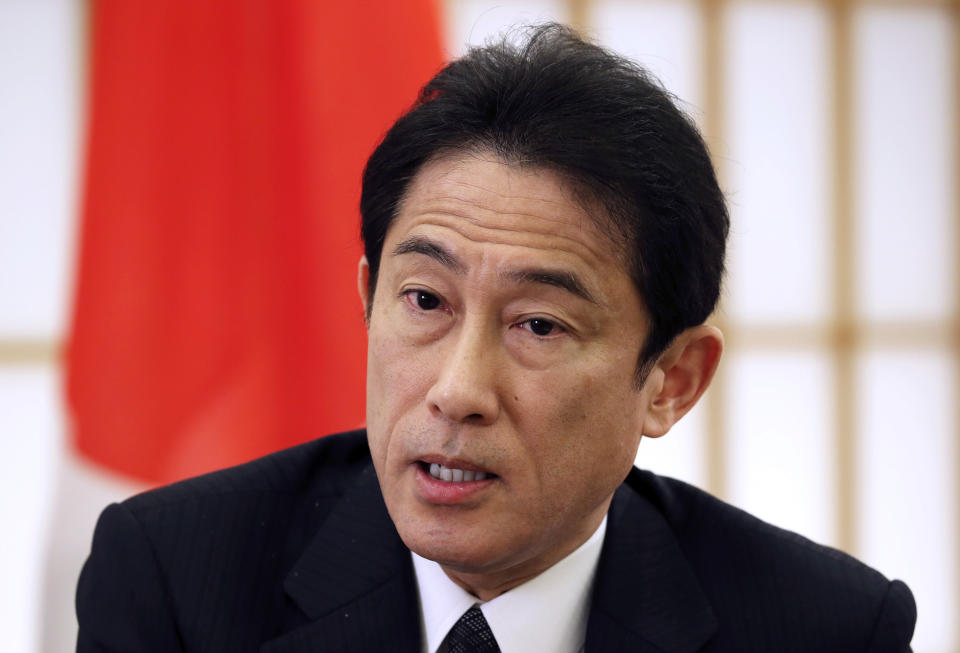Japan distances itself from right-wing statements
TOKYO (AP) — Japan's foreign minister is trying to distance his government from recent right-wing comments on World War II, calling them "regrettable" and saying they don't represent the government's views.
In an interview with The Associated Press, Foreign Minister Fumio Kishida also said that China's military expansion in the region is a concern, but he stopped short of calling it a threat.
New officials at public broadcaster NHK drew criticism recently when one denied the Nanjing massacre happened and another downplayed the use of so-called "comfort women" as sex slaves in World War II.
The statements drew angry responses from China and South Korea and have been seen by many as evidence that the government is shifting to the right.
Kishida said there have been no changes whatsoever to Japan's foreign policy and historical views. "It is very regrettable if these remarks have caused misunderstanding about the Japanese government's position," he said.
The Japanese government apologized to the former comfort women in 1993 and more generally for its "colonial rule and aggression" on the 50th anniversary of the end of the World War II in 1995.
Japanese Prime Minister Shinzo Abe has said repeatedly that he stands by those statements, but he has also raised questions in the past about the portrayal of Japan's role in the war. The comments by the NHK officials are among a series of developments in recent weeks that suggest his government may be pushing a conservative, revisionist agenda.
China and South Korea have fanned those fears, raising concern in Washington that their history disputes with Japan are further inflaming tensions in the region over territorial disputes and other issues.
Asked if he sees China as a threat, Kishida called China one of the most important countries for Japan. "If China develops peacefully, it is a benefit and an opportunity for Japan, and for the region. ... In that sense, I think China is not a threat to our country."
On the other hand, he said its growing maritime activities and lack of transparency in military development "are common concerns of the entire region" that Japan will watch closely. Japan is particularly concerned about Chinese attempts to strengthen its claims to disputed islands by sending ships into waters off the islands and creating a new air defense identification zone that overlaps them.
Abe has frosty relations with the leaders of China and South Korea, and his attempts to meet with them in his first year in office were rebuffed. Kishida said Japan will try to move toward a meeting by continuing exchanges with lawmakers and private citizens and lower-level talks.
"Japan has separate problems with China and South Korea, and we do face a difficult situation," he said. "That's why it is even more important for us to have high-level political dialogues."
___
Associated Press writer Mari Yamaguchi contributed to this report.



